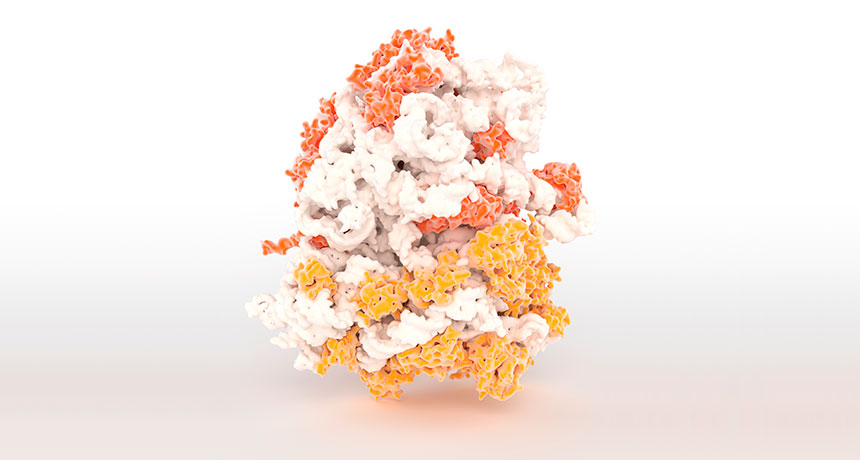
PHILADELPHIA — Protein-manufacturing factories within cells are picky about which widgets they construct, new research suggests.
These ribosomes may not build all kinds of proteins, instead opting to craft only specialty products.Some of that specialization may influence the course of embryo development, developmental biologist and geneticist Maria Barna of Stanford University School of Medicine and colleagues discovered. Barna reported the findings December 5 at the joint meeting of the American Society for Cell Biology and European Molecular Biology Organization.
Ribosomes, which are themselves made up of many proteins and RNAs, read genetic instructions copied from DNA into messenger RNAs. The ribosomes then translate those instructions into other proteins that build cells and carry out cellular functions. A typical mammalian cell may carry 10 million ribosomes. “The textbook view of ribosomes is that they are all the same,” Barna said. Even many cell biologists have paid little attention to the structures, viewing them as “backstage players in controlling the genetic code.”
But that view may soon change. Ribosomes actually come in many varieties, incorporating different proteins, Barna…
The post Not all of a cell’s protein-making machines do the same job appeared first on FeedBox.